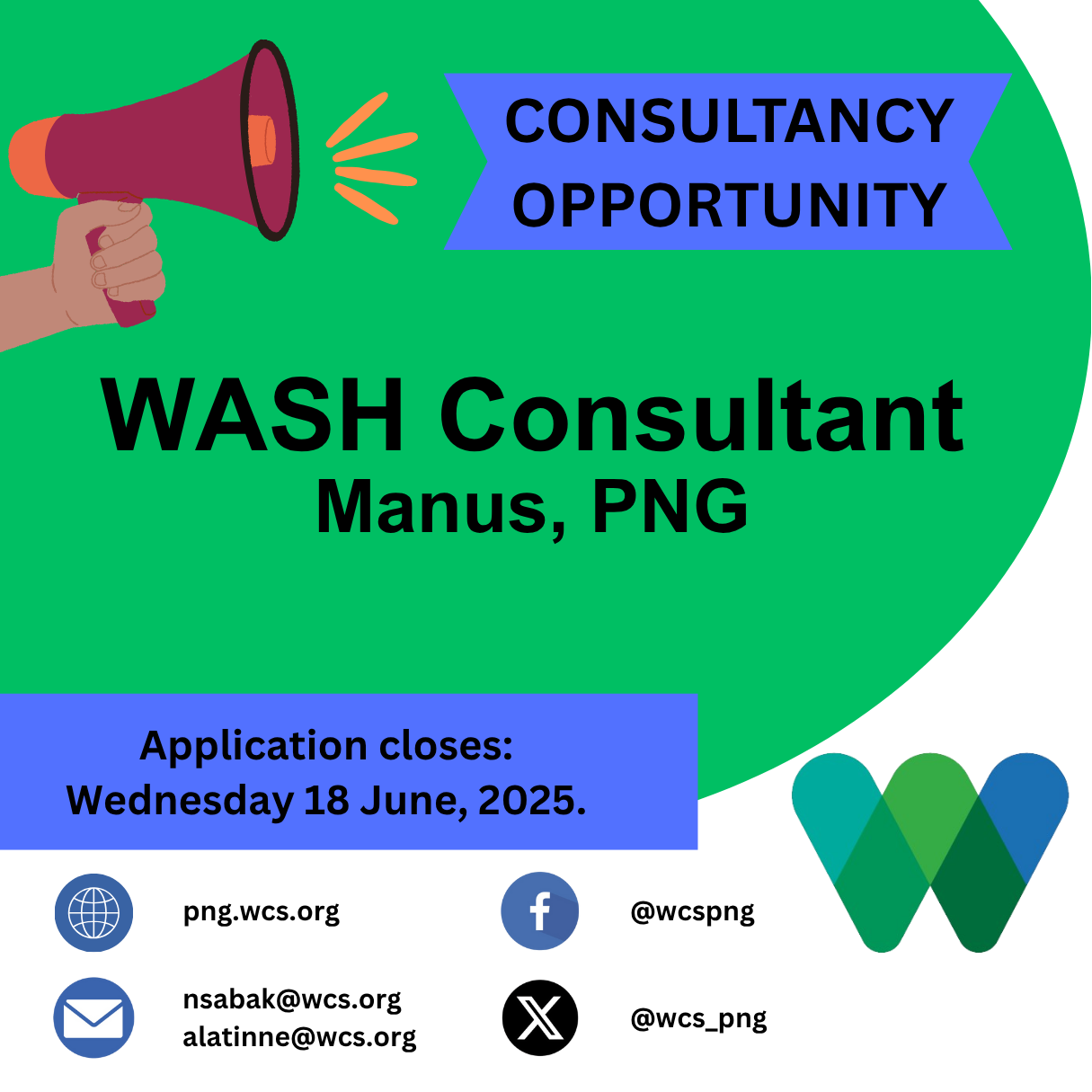
Request for Proposal and Terms of Reference: WASH consultant for Manus, PNG
1. Background: Melanesia (Fiji, Papua New Guinea [PNG], and Solomon Islands) is globally renowned for its high levels of biological diversification and endemism, which underpin all aspects of sustainable development across its natural resource-dependent economies. Yet Melanesia’s biodiversity and the human well-being that it supports are extremely vulnerable to forest loss, with rates far exceeding global averages. Loss of intact forest systems within Melanesian coastal watersheds is linked to multiple, adverse impacts to biodiversity and human health and well-being, as well as increased vulnerability to climate shocks. In Melanesia, outbreaks of water-related diseases are common, amplified by environmental factors related to climate change, land use change, and changing social conditions. Pacific Island Countries, including those in Melanesia, have the lowest coverage of improved drinking water and sanitation on earth, with two-thirds of people relying on unprotected water sources for drinking and cooking that are influenced by environmental contamination. This contaminated water leads to declines and disease in freshwater and coral reef organisms.
The Wildlife Conservation Society (WCS), with partners from the University of Sydney and University of Queensland, is implementing the Kiwa Watershed Interventions for Systems Health Plus (WISH+) project, a multi-country project funded by the Kiwa Initiative. The Kiwa Initiative is a multi-donor program that aims to strengthen the climate change resilience of Pacific Island ecosystems, communities and economies through Nature-Based Solutions (NbS). The overall goal of the project is to successfully implement Integrated Water Management (IWM) for biodiversity, climate resilience and human health co-benefits, as well as provide a model for managing systems health for the Pacific that is upscaled through decision-support tools, long-term sustainable financing and effective public policy. WCS and its partners are implementing IWM at key sites in Fiji, Solomon Islands and PNG, while developing Water and Sanitation Safety Plans (WSSP) with village-level water committees and implementing priority interventions to minimize risks.
2. Consultancy Objectives: Provide recommendations and technical advice on WASH interventions and Nature-based Solutions needed to improve the sanitation and water systems in nine project communities on Manus Island, PNG.
3. Scope of work:
- Review the Water and Sanitation Safety Plans that were developed for each project community and provide suggestions for refinement of the improvement plans.
- Visit at least 4 project communities to gain better understanding of the local context and specificities. The communities to visit will be selected based on the WSSP and in consultation with the WCS team.
- Using data available in the WSSP and collected during the site visits and conversations with the WCS team, develop a comprehensive list of tailored infrastructure interventions (toilets, septic tanks, dams, water tanks, piping systems…) recommended for each project community to upgrade existing water and sanitation systems, improve water quality and availability, reduce risk of water-borne diseases and strengthen climate resilience.
- Recommend appropriate and detailed designs for the listed infrastructure. Recommended designs must be sustainable, climate-resilient and adapted to the local environment and PNG standards.
- Identify priority interventions to be implemented by the Kiwa WISH+ project in consultation with the WCS team based on available budgets and local context.
- Develop a comprehensive list of materials to be procured to build the priority infrastructure.
- For each project community, develop a comprehensive description of Nature-based Solutions that can be implemented to complement the infrastructure interventions in the project communities.
4. Deliverables:
- Reviewed WSSPs with suggestions for refinement of the improvement plans
- Report on the site visit in project communities
- Report including:
- Description of infrastructure interventions recommended to upgrade existing water and sanitation systems and tailored for each of the Kiwa WISH+ communities in Manus, including detailed descriptions of recommended designs
- List of interventions identified as priority to be implemented by the Kiwa WISH+ project
- Comprehensive list of materials to be procured to build the priority infrastructure
- Description of recommended Nature-based Solutions to complement the infrastructure interventions for each of the Kiwa WISH+ communities in Manus
5. Timeline: The consultant will carry out the work remotely with a site visit to Manus Island, PNG. The consultancy work will start by August 2025 and should be completed by the end of October 2025.
6. Requirements and Qualifications: The consultant will have demonstrated experience in conducting site assessments and designing WASH interventions in remote communities in the Pacific, preferably in PNG, and in integrating Nature-based Solutions into WASH programs. The consultant will also have a strong understanding of sustainable and climate-resilient WASH systems.